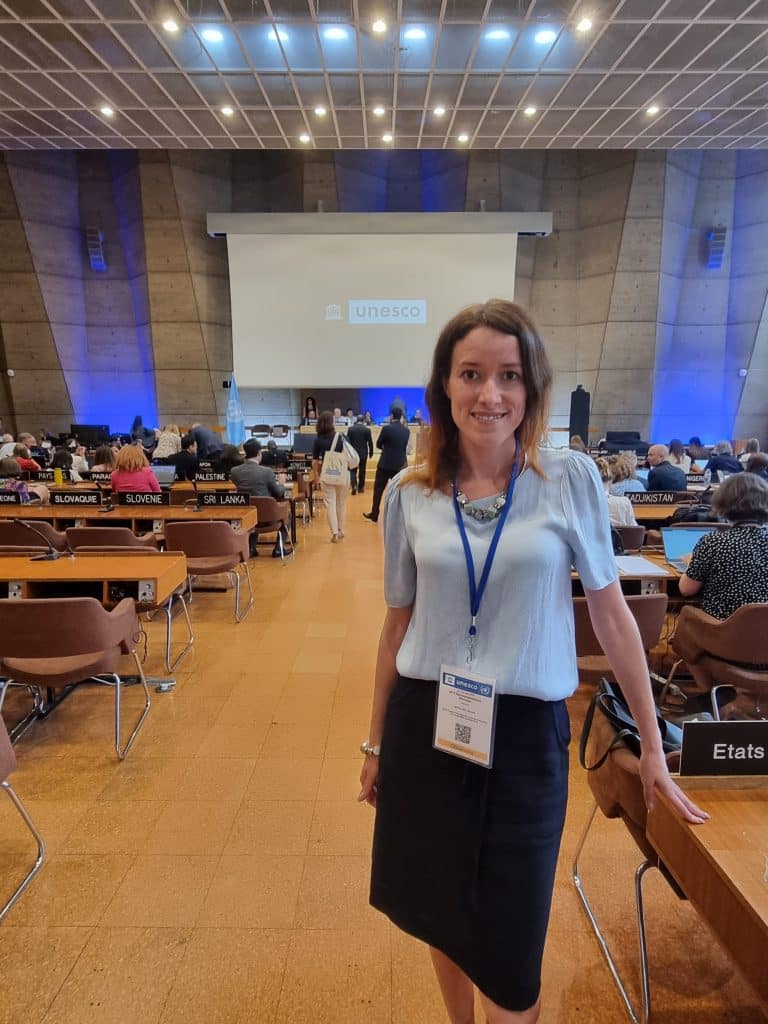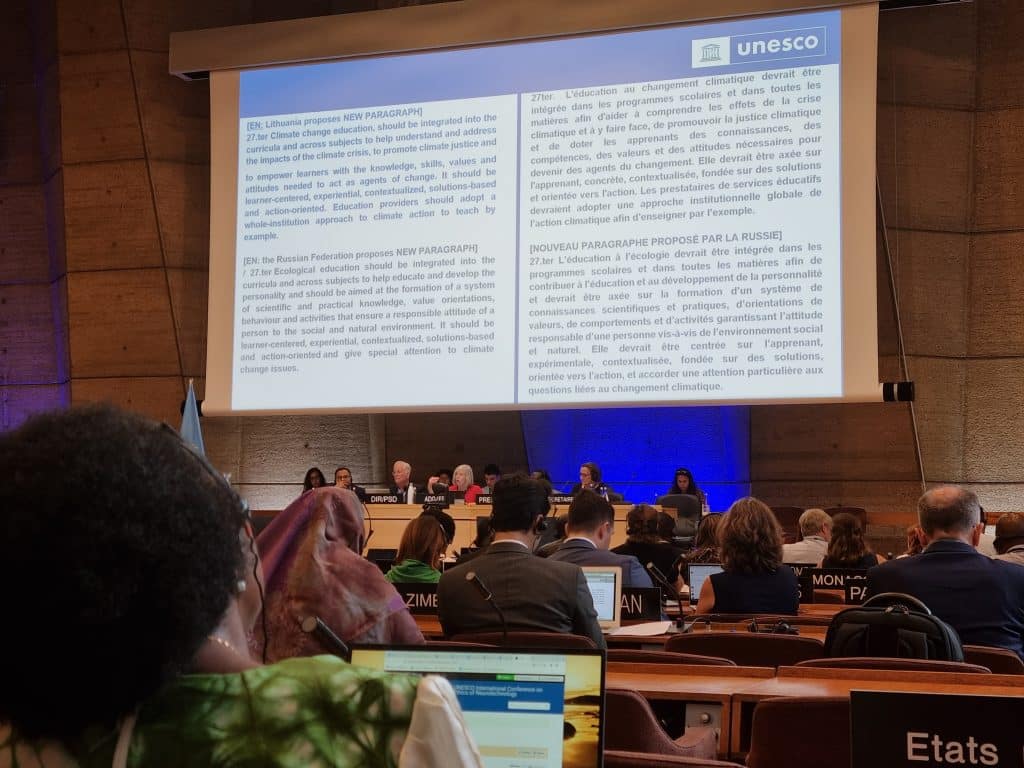After an intensive consultation and drafting process spanning two years — incorporating a global survey, six regional consultations, four thematic consultations, five thematic papers and three technical notes, as well as meetings of an international expert group — UNESCO has presented a revised version of the 1974 Recommendation concerning Education for International Understanding, Co-operation and Peace and Education relating to Human Rights and Fundamental Freedoms, at the request of Member States. Almost fifty years after its original adoption, the need for a fresh iteration of this influential international instrument was acknowledged, one that enables education worldwide to better meet the challenges of the twenty-first century.
In accordance with goals to align the Recommendation more closely with Sustainable Development Goal (SDGs) Targets 4.7, 12.8, 13.3 and 16 of the 2030 Agenda for Sustainable Development, that promote ESD and GCED (Education for Sustainable Development and Global Citizenship Education respectively), existing concepts have been updated, and new ones added. A new title has also been established: “Recommendation on Education for Peace and Human Rights, International understanding, co-operation, fundamental freedoms, global citizenship and sustainable development.”
From 28th May to 2nd June, and from 10th to 13th July, UNESCO headquarters in Paris hosted two intergovernmental special committee meetings, bringing together delegates from ninety member states as well as forty non-state observers. This meeting offered Member States and observers a chance to collaboratively review the updated version of the Recommendation, with consensus-building often continuing late into the night. The agreed-upon text will be submitted to the General Conference with a view to being adopted at its 42nd session in November 2023.

Having contributed a Technical Note on The role of non-state Actors in the promotion of peace through education https://unesdoc.unesco.org/ark:/48223/pf0000384609, Earth Charter International has been following this process with keen interest, and was honoured to be invited to attend proceedings in the role of observer. Nicola Sutcliff, a research assistant at Earth Charter International and collaborator on the submitted technical note, acted as representative. You can watch her intervention highlighting the importance of greater collaboration between Member States non-state actors here: https://youtube.com/clip/UgkxLMwwMWqajPAOmKMIO9shq1uH_uBkP2fa.
In addition to increased recognition of the role non-state actors can and do play in these processes, Earth Charter International is pleased to see transformative education, and education for sustainable development (ESD) in particular, taking centre stage in the revised Recommendation, and is encouraged by the strong support these elements have received from Member States. We see this updated instrument as a central vehicle in processes of infusing sustainability and peace into education.

Earth Charter International looks forward to continuing engagement with the Recommendation as it moves into its implementation phase, and to contributing to turning its inspiring vision into reality.
More Information can be found here: https://www.unesco.org/en/education/1974recommendation and here: https://www.unesco.org/en/education/1974recommendation/technical-consultations







